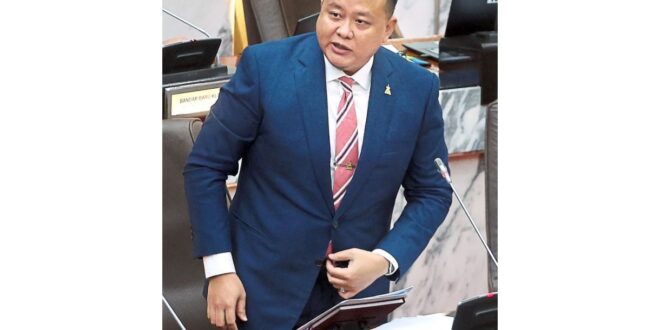SELANGOR is open to the idea of declaring traditional villages as heritage sites and applying for Unesco World Heritage Site recognition if there are requests.
However, the state has no immediate plan to do so, says state rural development, unity and consumers committee chairman Datuk Rizam Ismail (pic).
“If there are requests, we will obtain feedback from relevant parties if there are suitable and appropriate villages,” Razim said at the Selangor state assembly sitting in Shah Alam.
Rizam was responding to a question by Datuk Seri Azmin Ali (PN-Hulu Klang) on behalf of Datuk Abdul Rashid Asari (PN-Selat Klang) on whether Selangor had plans to gazette several Chinese new villages as Unesco World Heritage Sites as suggested by Housing and Local Government Minister Nga Kor Ming.
Azmin, in his supplementary question, sought clarification on Nga’s proposal to declare Chinese villages as Unesco heritage sites, which had sparked controversy.
“The proposal overlooks national interests and the national unity initiative, which should be a fundamental consideration before any decision is made,” said Azmin.
Replying to Azmin, Rizam said Nga’s proposal had not been implemented and he saw no issue with any leader applying for places deemed suitable to be recognised as a heritage site.
“Anyone can apply to Unesco for recognition and it is up to Unesco to re-evaluate matters,” Rizam added.
In June last year, Nga said seven villages were selected as national representatives for submission to Unesco for World Heritage Site status, and in February this year, he said a discussion would be held with the Selangor government on the details soon.
In an unrelated issue, human resources and poverty eradication committee chairman V. Papparaidu said there were only 41 Orang Asli in the Selangor civil service, which was 0.36% of the state’s civil workforce.
He said seven of them occupied positions in the state’s public administration while 34 worked with the local councils.
At the public administration level, six were permanent employees and one was under contract while at the local councils, 22 were permanent staff with 12 under contract.
Papparaidu was replying to Lim Yi Wei (PH-Kampung Tunku) who asked about the role of Orang Asli in the civil workforce.
“At the Indigenous Development Department (Jakoa), however, the percentages are higher where 29 out of 83 of the workforce are Orang Asli,” said Papparaidu.
He added that the state government had always given emphasis to employ qualified Orang Asli in its civil sector and at Jakoa.
 BeritaKini.biz Berita Viral Terkini di Malaysia
BeritaKini.biz Berita Viral Terkini di Malaysia





